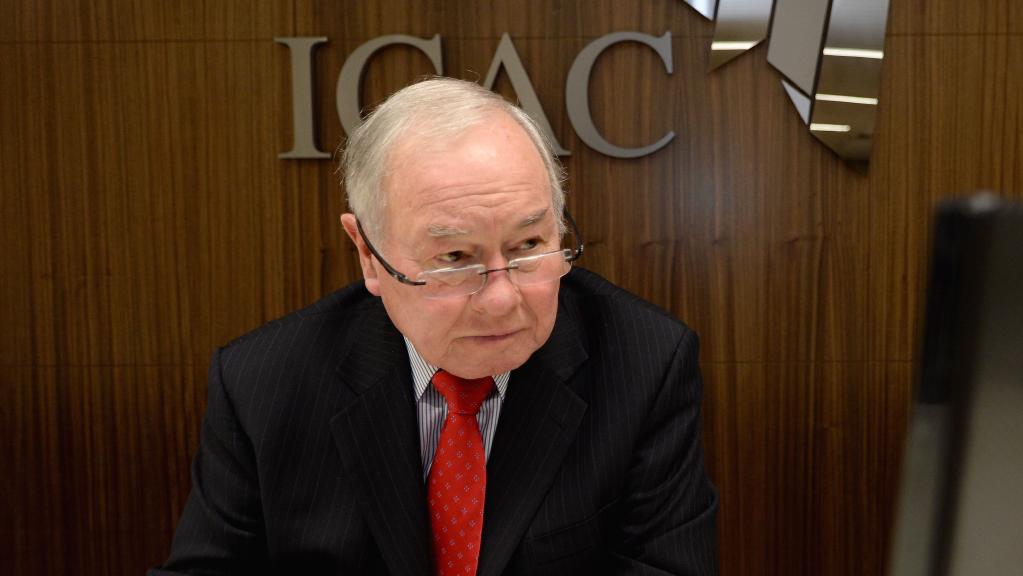This material belongs to: The Mandarin.
South Australian Independent Commissioner Against Corruption Bruce Lander yesterday released a report from entitled “Oakden: a shameful chapter in South Australia’s history”. It documented horrific abuse of vulnerable older people in the care of the state. It was not about corruption, so why did ICAC do this report?
The answer to this question helps us understand what anti-corruption agencies (ACA) might or might not do. Their legislation is always specific, and around Australia they vary greatly in jurisdiction and powers. All are expected to tackle corruption. Some have organised crime as a target, at the other end of the spectrum some cover misconduct. Some encompass police misconduct as well. Some carry a big stick, others are accused of having the impact of a slap with a wet lettuce leaf. Some have been accused of over-reach, and have had push-back against them.
Against this backdrop is a call for a Commonwealth ICAC-type institution. There is still to be the debate on the nature of its jurisdiction, the types of activities it will pursue, the targets of oversight, the powers it will be granted, and, importantly, whether it will have separate or overlapping authority. Issues of coordination and independence will also feature large in the debate.
So now, enter from left field, a major report by a state ACA on maladministration in a nursing home. I would argue that this is exactly the sort of thing that an ACA should pursue. We could debate forever whether a politician who travelled to a desirable destination and who tagged on a private business arrangement, or a sporting event, or party function (or just went to a party), and who claimed not to have broken any rules, should be subject to the bark or bite of an ACA.
Whichever way we look at it, Australia is a low-corruption country, but this is not to say that corruption is not significant and important in our political and public service life. In low-corruption environments examples of corruption are examined with greater scrutiny and treated as particularly egregious because we expect better, and expect higher standards than those shown by the transgressor.
In South Australia this state-run nursing home treated residents appallingly. Lander called them out. The commissioner said that the evidence he received was “astonishing” and that the abuse resulted from systemic failings in processes and oversight, and a culture of secrecy.
The report focused on management deficiencies and maladministration. His findings include 13 recommendations to improve clinical governance, administration and care processes. Knowing what to do to prevent abuse and bring to justice perpetrators who harm older people needs clear thinking and clear legal powers. In this case there is a clear set of accountabilities and responsibilities, and this report will set some directions for better care and community engagement.
The legislation under which he operates gives him powers to investigate (including on own motion) corruption, maladministration and misconduct. Section 4 (2) of the SA ICAC Act provides:
“For the purposes of this Act, misconduct or maladministration in public administration will be taken to be “serious or systemic” if the misconduct or maladministration —
(a) is of such a significant nature that it would undermine public confidence in the relevant public authority, or in public administration generally; and
(b) Has significant implications for the relevant public authority or for public administration generally (rather than just for the individual public officer concerned).”
One could argue that misconduct is not an ACA matter. If it is criminal, it is a police matter, if not it should be dealt with by the agency head or the Public Service Commissioner.
What gets up the public’s nose are services that do not serve the public, services that are maladministered or are wasteful in their resource usage, and they want a watchdog to call out waste, fraud and abuse.
In the Oakden case Lander showed careful understanding of the challenges faced by whistleblowers and systematically outlined the administrative weaknesses and the culture which allowed it all to happen. There was no corruption, just horrible actions that had devastating consequences for vulnerable people. He recommended that five individuals be dealt with for maladministration. He has no power to deal with them. As a watchdog he has no bite, but his bark will be heard and will make people very wary indeed.
Professor Adam Graycar is one of Australia’s top anti-corruption experts and former public servant whose career included leading the South Australian Cabinet Office and the Australian Institute of Criminology.


